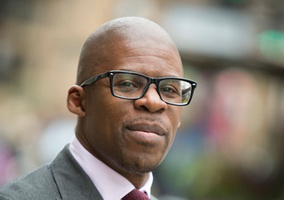The white chief executives of charities must do more to improve diversity and combat prejudice in the sector, according to an article published this week in Governance & Leadership magazine.
Tom Lawson, chief executive of Leap Confronting Conflict, writes, in an article called Us white charity CEOs need to talk, that as a white, privately-educated, middle class man, the odds of him reaching a top job were stacked in his favour. He said that he and other white leaders in the charity sector needed to be aware of their own privilege and their own prejudices, and take steps to counteract this.
He says the volume and frequency of conversation about prejudice must be increased, and that conscious mechanisms must be put in place to compensate for unconscious prejudices.
“It’s important to know that our subconscious mind makes most of our decisions,” he writes.
'We need to understand our privileges'
“White people not only need to understand the dynamics of our privileges, but to be honest that hidden beyond our concepts of ourselves sit a range of prejudices we have absorbed.
“If you are a white CEO, face up to the likelihood that you are prejudiced. Once you do, you’ll get more practised at bringing your subconscious biases into the light and be able to tackle them more effectively and quickly. You’ll also achieve more impact in your work.”
Lawson writes that racism and prejudice are a problem which affect most charities, not just those such as his own which focus on social exclusion.
“Consider, for example, a health charity – nearly all illnesses affect people no matter their background, so why should engaging people of colour in an organisation be important?” he writes.
“Black British people are six times more likely to be sectioned under the Mental Health Act; if you’re a black woman, it’s higher. They are more likely to have poorer health outcomes when struck by illnesses. That’s why. Racism affects most aspects of life.”
'We must be able to challenge prejudice elsewhere'
He writes that charities which increase diversity and inclusion in their workforce will achieve better results, but they must also do it so they can challenge prejudice elsewhere.
“If our sector cannot demonstrate diversity in its leadership, then we’re not in a position to challenge the rest of society to improve,” he writes.
“My driver is that white people in society create this disadvantage, and that while black, Asian and people from other ethnic groups are tackling it, white people must too.”
The article Us white charity CEOs need to talk was first published in G&L this week.
|
Related articles











